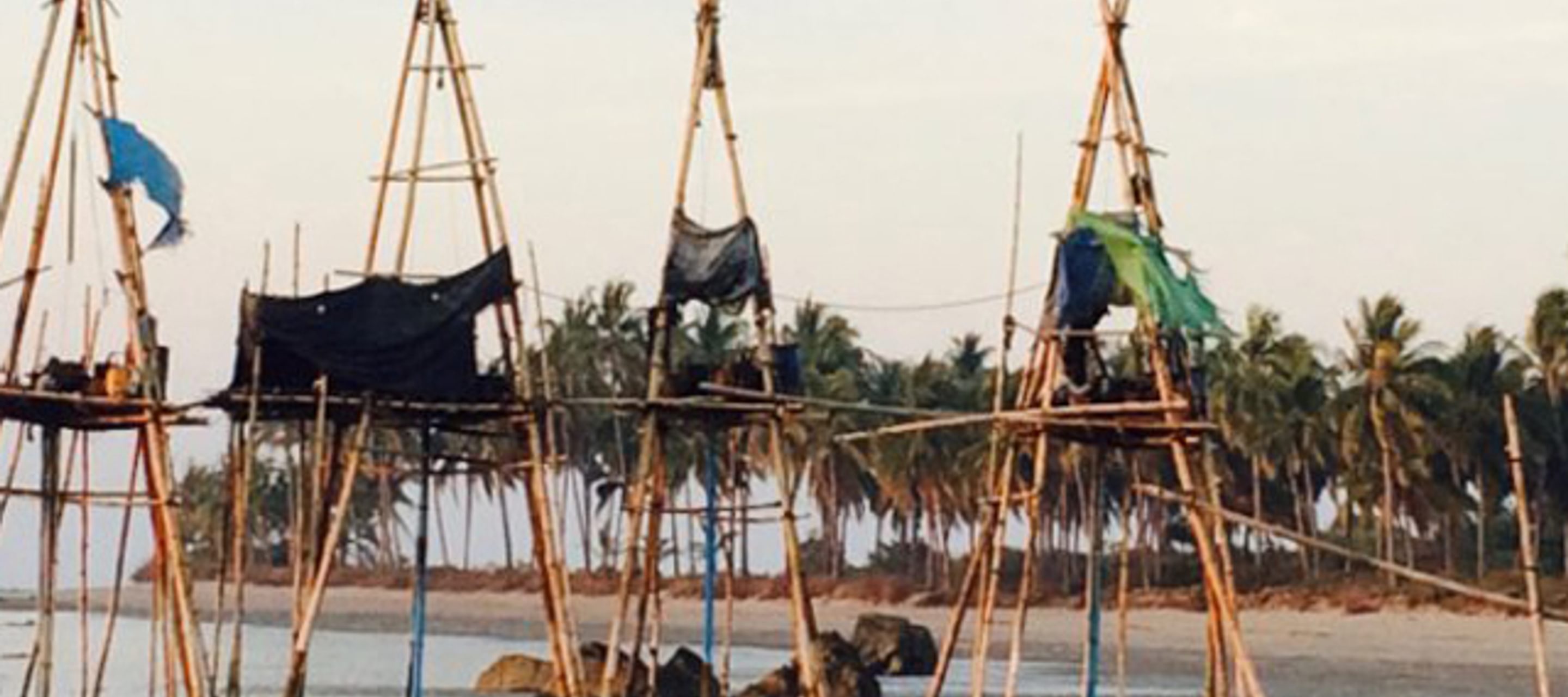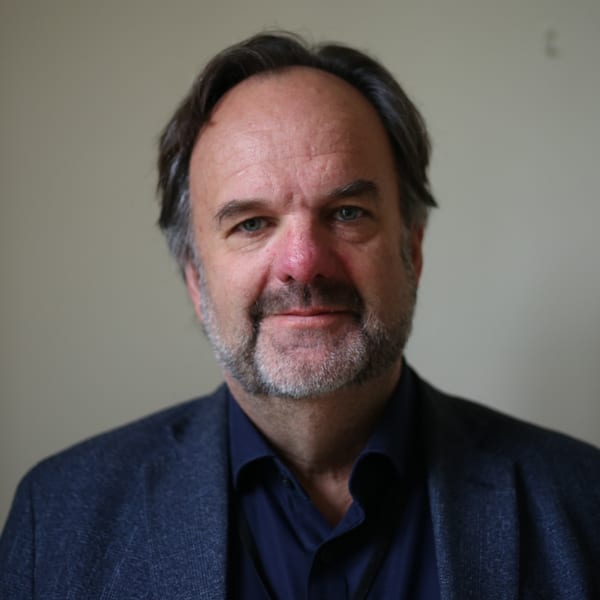Shifting Sands in Myanmar
16 March 2017

Some of the poorest people in Southeast Asia are those that test their luck drilling for oil in the sand and mangrove swamps of the Rakhine State in Myanmar (Burma). There is no mechanical drill, everything is done by hand. To reach a depth of 100m takes months of work, something that has gone on since colonial times. Some will have basic motors and a winch, others will do the winding up by hand. When the oil flows, it does not gush but comes up in scoops, perhaps up to five a day amounting to 15 litres if lucky. A good day might be worth a few dollars, a bad day much less – making these people very poor by any standard.
Hidden on a hillside was one of the “refineries” resembling Professor Snape’s classroom with huge bubbling cauldrons of the artisanal oil, condensed through other pipes and dribbling into canisters as low grade petroleum, and when the temperature has dropped still further, diesel.
This visit to Myanmar, my fifth, has taken me to meet Director Generals and Deputy Ministers of government departments in the capital NayPyiTaw, foreign companies and governments in Yangon and quality time with our team at the Myanmar Centre for Responsible Business – now nearly four years old. But it is the trip to Kyaukphyu (pronounced “chowk-pyoo” in English) in the southern part of the Rakhine that has left the greatest impression.
Myanmar’s first EITI report states payments to the government by the companies involved in the Shwe Gas field to be around $65 million in addition to Myanmar’s own production share. However the pipelines were not included and so the transportation fees related to these pipelines are not yet known.
Rakhine is the poorest state in Myanmar, despite the sandy beaches, and now the oil and gas have arrived in bulk, not via the bamboo derricks on the beach but the vast off-shore reserves. The Shwe Gas field is about 170km out and comes ashore near Kyaukphyu to be analysed and measured by a Korean-Indian-Myanmar consortium of companies. The oil comes from the Gulf and will be off-loaded by tanker at a vast terminal cut out of rock and jungle by a Chinese-Myanmar consortium at an island installation that could only be seen by chartering a fishing boat (all very Ian Fleming). Both the gas and oil pipelines meet up and then tunnel their way from Rakhine, through the rest of Myanmar, Western China and down to connect with the main Southern China supply grid – a distance of over 2,000km. Myanmar’s first Extractive Industries Transparency Initiative (EITI) report was published in December 2015 and reports payments to the government by the companies involved in the Shwe Gas field to be around $65 million in addition to Myanmar’s own production share. However the pipelines were not included and so the transportation fees related to these pipelines are not yet known. Myanmar’s second EITI report is delayed.
These pipelines are a big deal. A valuable source of much-needed revenue for Myanmar, as well as 20% of the gas, but they are the great supply road from South Asia into the heart of China – part of the new ‘silk road&rsquo.
These pipelines are a big deal. A valuable source of much-needed revenue for Myanmar, as well as 20% of the gas, but they are the great supply road from South Asia into the heart of China – part of the new ‘silk road’ if you like. The pipelines could equally extend west towards India, but the sea gets too deep further out in the Bay of Bengal and Bangladesh will only allow pipelines across its territory if it is worth its while. So instead all goes East, even it was an Indian company that built the Kyaukphyu oil terminal and another Indian company still hold minority shares in the gas operation.
Local business folk in the town still believe a railway might also come one day – linking them to China - but there seems to be no evidence of this at present. What may be coming is a Special Economic Zone and a deep-sea port bringing opportunities for Myanmar for international trade if they can meet required quality standards across a range of agricultural products and textiles.
The big question is whether it will be the local people that benefit or the much better educated from Yangon or Mandalay? At the moment the international companies could point to only a few roles – security, gardening, catering – where such ‘local content’ jobs exist. Even the local businesses bemoaned the lack of adequate technical training to meet the skilled staff they needed. The community-based organisations we met said the same: they were not convinced that the coming economic development would benefit the bamboo-hut dwelling villagers they represented.
Some of the greatest poverty in Southeast Asia sits cheek by jowl with some its greatest modernity – oil being drilled by hand in sight of the gas plant, and rocks being quarried by open-toe sandal wearing villagers only 10m from the locked up earth movers that constructed the oil terminal.
So in many ways Kyaukphyu sits at the heart of the country’s potential economic development and Myanmar in many ways is at the centre of Asia. Any strategic analysis of the continent would place this small town as a nodal point. But some of the greatest poverty in Southeast Asia sits cheek by jowl with some its greatest modernity – oil being drilled by hand in sight of the gas plant, and rocks being quarried by open-toe sandal wearing villagers only 10m from the locked up earth movers that constructed the oil terminal. One of those heavy rocks dropped on the toes would be the end of a livelihood for a whole family for a lifetime.
But alongside all of this, slightly below the surface, lies fear. In 2013 Kyaukphyu saw some of the bloody intercommunal violence between Buddhists and Muslims that scarred certain cities in Myanmar. Even if things in the southern part of Rakhine State are less tense than the north, local businesses and community organizations alike said that – despite years of living together without problems - most (perhaps all) Muslims had now left the town for Yangon and elsewhere out of concern for their security. The “Rohingyas” (although most Buddhists will use the term "Bengalis”) in the camp just outside the town were all from further up the coast. But to have a whole section of the community either just gone and living in squalor in a camp – guarded by the army (keeping people both in and out) – reminded me of my own work relating to the former Yugoslavia in the 1990s and, of course, other times of European history we have all read about. Burnt out houses and shops, an invisible terrified community that no one really wanted to talk about, all too familiar.
Businesses will be asked to account for what they are doing for this community – the proposed Chevron shareholders resolution, due to be voted on in May 2017, might be the first of many to come.
What should international companies investing in Myanmar do? Later this month, debates at the United Nations Human Rights Council, as well as the independent commission led by Kofi Annan, will make Geneva the centre of moral outrage on the treatment of Rohingyas. Businesses will be asked to account for what they are doing for this community – the proposed Chevron shareholders resolution, due to be voted on in May 2017, might be the first of many to come. When you speak to experts on the issue, it is clear that the deep-seated mistrust and hatred is not only about religion, but also has roots back to British colonial times and that nasty obsession with classifying ethnic differences between people.
At a minimum, we must expect all international companies to hold true to their human rights commitments, and to ensure they work to prevent any discrimination in their workforces, customers and suppliers, as well as in their community engagement.
At a minimum, we must expect all international companies to hold true to their human rights commitments, and to ensure they work to prevent any discrimination in their workforces, customers and suppliers, as well as in their community engagement. This is easier said than done, particularly when the muslim community are increasingly losing the documentation they need to study and work. But for companies not even to engage in this dilemma makes them complicit to the silence. The hatred is visceral, but we have seen it before in Northern Ireland or apartheid South Africa. When it comes to the Rohingya, many make comparisons to the generations old hatred of Roma in Eastern Europe – a community that is of a place but has – for many generations – been unwilling or unable to fit in.
It may be tempting for the inhabitants to forget their former Muslim neighbours as an inconvenient truth and for investors in Kyaukphyu disregard the nearby camp of displaced Rohingyas. Investors should also understand that it is not just the Muslim community that was displaced and neglected; the Rakhine Buddhist community has long felt neglected and discriminated by the Myanmar’s majority Bamar. Businesses need to meaningfully engage with all local communities to address their economic marginalization.
We were told that foreign companies should listen and think before speaking out into this highly sensitive debate or else risk hardening attitudes and make things worse not better. Additionally, Myanmar needs investment and workplaces which can model tolerance and respect. Myanmar values ‘mindfulness’ and that is something companies should exercise – in the form of human rights due diligence to understand the human rights risks and their potential impacts. The corporate responsibility to respect rights means that business must be acutely aware of the danger of either sub-contracting their community relations to others or relying on government alone to fulfil this role.
We must work towards a time ahead when the people of Kyaukphyu will have a happier story to tell.
So the sands are shifting. Which way, time will tell. But the next time you hear a politician making a hate-filled speech in Europe or North America, remember in this world of Facebook (the social media of choice in Myanmar), the first invisible victim of such hatred is likely to be in a place such as this. We must work towards a time ahead when the people of Kyaukphyu will have a happier story to tell. A vibrant town at the centre of sea, and may be rail, connections between East and West: connecting not just Buddhists and Muslims (and one day Hindus) but us all.
This commentary was originally published on LinkedIn.




